What happens when Fortnite hits China?
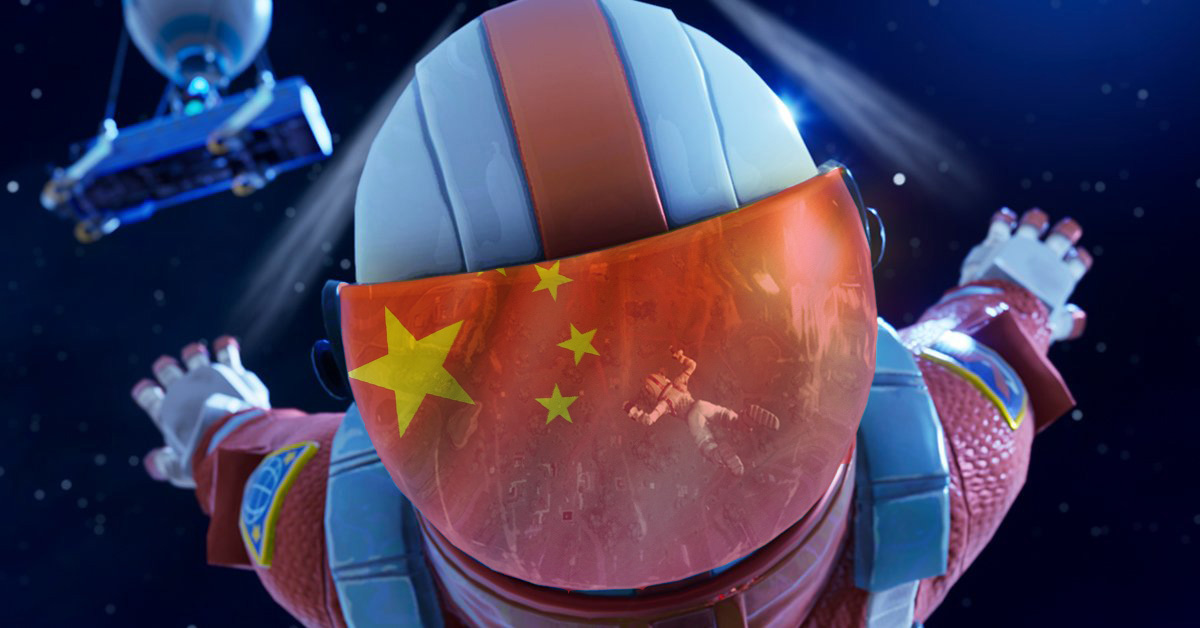
Contrary to popular belief, Fortnite hasn't taken over the world. Yes, it is ludicrously popular in North America and Europe, bringing in $126 million in February alone. In the weeks since the game launched on iOS, Epic earned an additional $15 million, as well as a few hilarious trend-pieces analyzing how schools have moved to keep kids off their phones in class. Fortnite has also famously ousted PUBG from the kingpin spot on Twitch, in a development that continues to cause a ton of consternation among PUBG's truest disciples. But seriously, despite all that buzz, despite those tectonic shifts in cultural cachet, Fortnite hasn't taken over the world, because Fortnite has yet to launch in China. No, you cannot acquire the game on PS4, Xbox One, PC, or mobile phones in China, and right now Epic is mum on a future release date.
By the end of 2017, more than 10 million copies of PUBG had been sold on Steam in China and around 45 percent of active players globally were based in China.
Analyst Daniel Ahmad
But it has to be coming, and probably sooner than later. This is a big deal, because PlayerUnknown's Battlegrounds continues to be a major force in China. If you miss the balmy afternoons of the summer of 2017, when Brendan Greene's baby was the biggest name in town, you really ought to make it out to a Shanghai PC cafe. Those days never left, they've just moved to the other side of the globe. Daniel Ahmad, an analyst at the consulting firm NikoPartners, makes that abundantly clear.
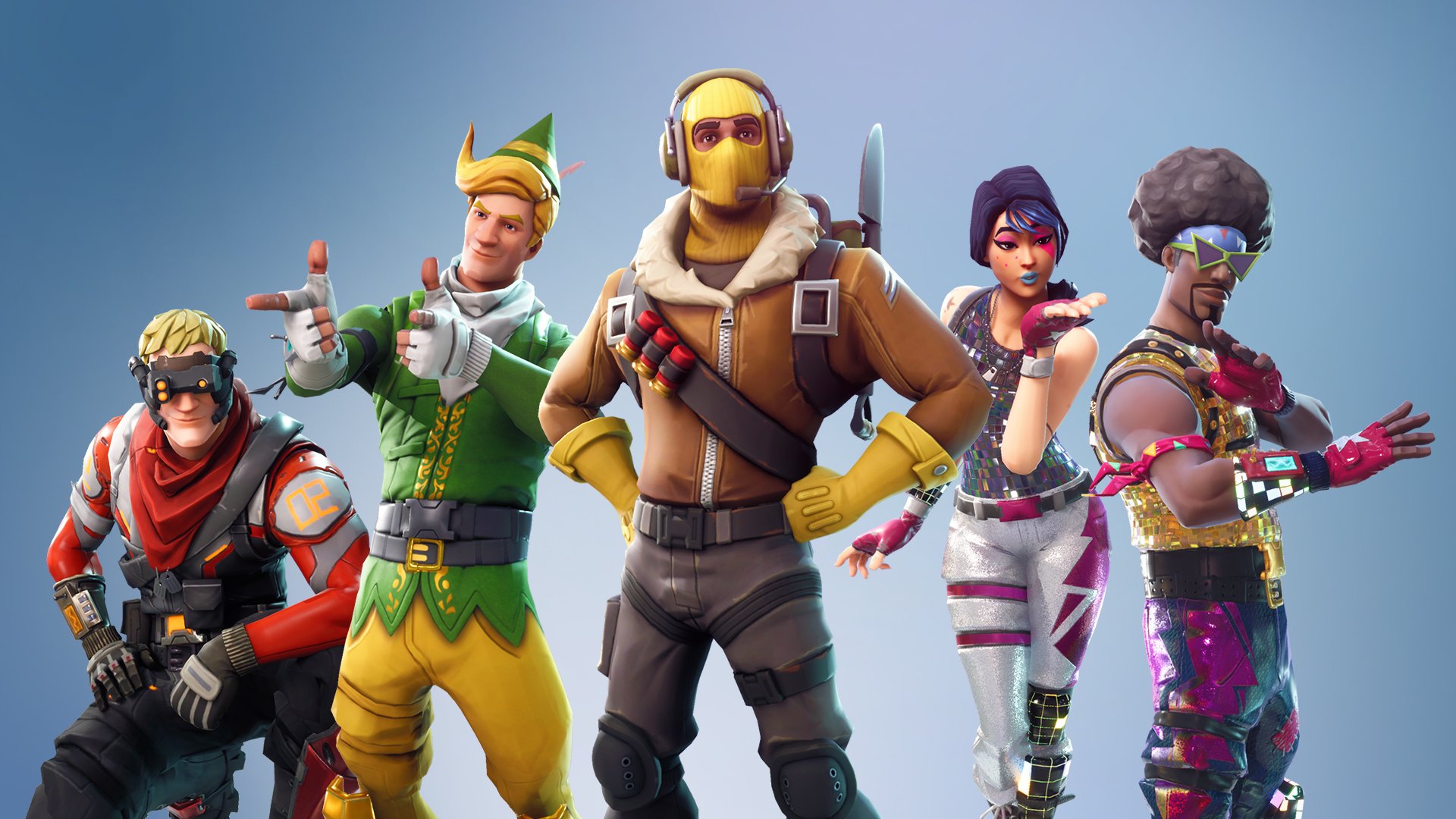
What's new with the latest Fortnite season
The best Fortnite creative codes
The optimal Fortnite settings
Our favorite Fortnite skins
The best Fortnite toys
"Despite only being available on Steam, millions of Chinese gamers signed up for a Steam account just to buy the game and join in on the fun," he told me. "By the end of 2017, more than 10 million copies of PUBG had been sold on Steam in China and around 45 percent of active players globally were based in China." It's hard to overstate how big PUBG's impact on the global Steam userbase was. In January 2017, 10.5 percent of Steam hardware survey responses were in Chinese. In January 2018, they were 67 percent Chinese.
That fortune was a genuine surprise. In America it was charming, if not particularly shocking, that a well-crafted battle royale military sim like PUBG made waves. The genre had been percolating on the fringes of the games industry for years in Arma mods and thirsty H1Z1 variants—and it made sense that a particularly great design would tear the house down. You can always count on the Western world falling in love with a brand new shooter with a brand new idea. See also: Call of Duty 4: Modern Warfare, Halo, Counter-Strike, Quake.
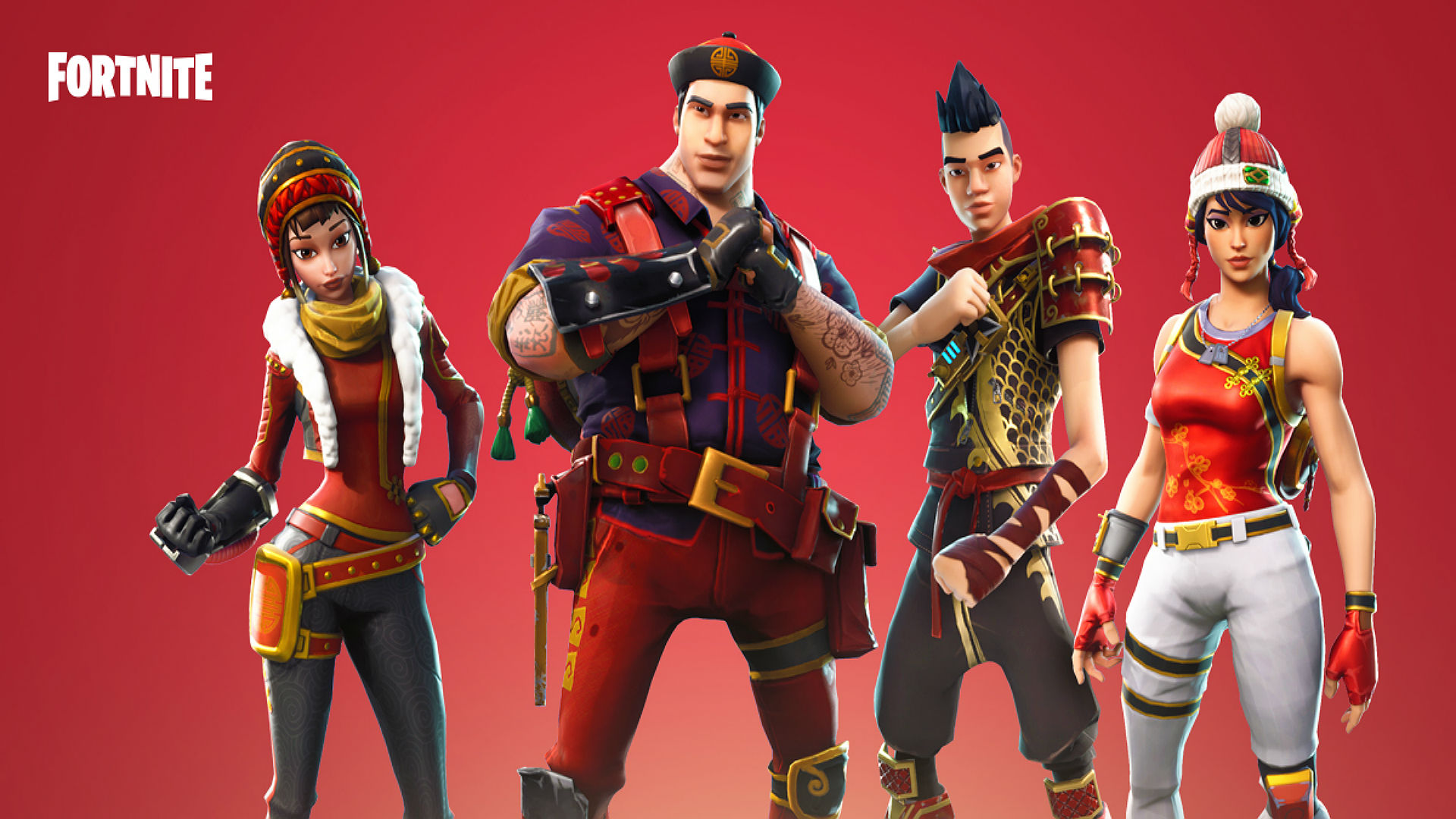
China though? China is different. Alongside mainstays like League of Legends and Dota, the country errs towards geriatric games like Dungeon Fighter Online (2005) and CrossFire (2007). The reasons for this are multifaceted and complicated, and many developers are just starting to catch on to the value of a Chinese localization. So, it's genuinely nuts to see PUBG, in all its shiny new high-spec glory, on top of the Douyo directory. This is a story that nobody, not even experts like Ahmad, predicted. He attributes it to pure word-of-mouth momentum, starting with livestreaming and esports.
"The first Gamescom invitational had over 140,000 users on Twitch, but we noticed that Panda TV, a Chinese game live streaming site, had even more viewers at the time," explains Ahmad. "Chinese esports teams such as Snake and Invictus Gaming started their own PUBG teams. Weibo, the Twitter of China, started its own esports club and created a PUBG team."
Chinese gamers were literally opening up Steam accounts specifically to purchase PUBG, much in the same way you and I might reluctantly join Origin because it's the only way to play Battlefield. It's also been a huge deal in LAN dens. Ahmad cites numbers from Shunwang, an internet cafe management platform, that state that Battlegrounds was the second most popular game in their buildings, behind only League of Legends. It's safe to say that when Fortnite does eventually launch in China, it'll be gearing up for another fight.
Keep up to date with the most important stories and the best deals, as picked by the PC Gamer team.
When Fortnite goes global
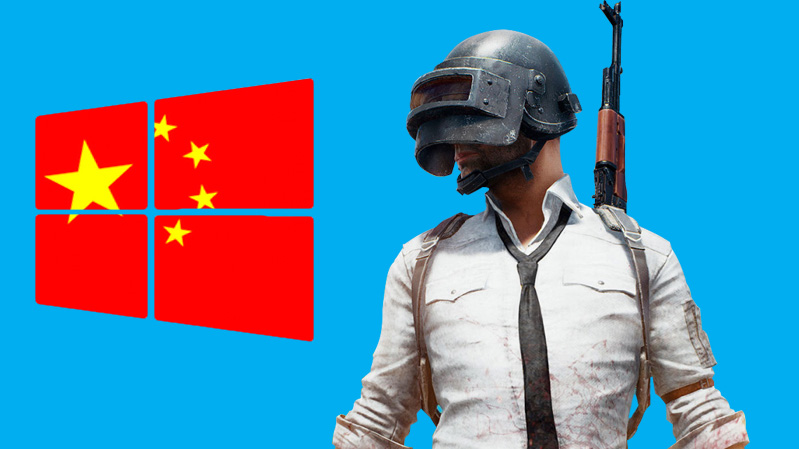
Last year, Tencent announced that the company will localize PlayerUnknown's Battlegrounds in accordance with the Chinese Communist Party's "core socialist values." It remains unclear what that means, or how "unity" and "harmoniousness" can be injected into a battle royale game, but it does set an interesting precedent for the future. It's possible the tone of Fortnite will look a little bit different when it hits Chinese shores.
At first glance, that seems like a fight Fortnite should be poised to win. Thanks to its cartoony aesthetic, free-to-play allure, and Drake, it handily surpassed PUBG in the West. So sure, there's a chance that Epic will replicate that success with ease (when we broached the topic, Epic declined to comment for this story). Still, China is still a very idiosyncratic region, with very different consumer priorities, and a lot of the methods Fortnite used to get over in America won't necessarily apply.
For instance, a huge component of Fortnite's growth was how it beat PUBG to PS4 and Xbox One, giving millions of kids a chance to sink their teeth into a battle royale game without needing a particularly good rig. And it runs smooth. China, comparatively, isn't really a console country. Ahmad tells me that while there are roughly 600 million Chinese gamers, less than two percent of the demographic has a Playstation hooked up to their TV.
"It’s highly unlikely that a battle royale game on console will see the same level of success that it will on PC or mobile, as PUBG has demonstrated in China," he explains.
The biggest market for Chinese games continues to be mobile, as evidenced by the cell phone MOBA Honor of Kings, which hosts 160 million active monthly players. Bluehole has already found some profitability with the mobile version of Battlegrounds, and there's also the precedent of Knives Out, a hugely popular app-based battle royale game developed by the Chinese internet company NetEase. So it's easy to read Fortnite's move to mobile as the initial step in an eventual eastern campaign, especially when you consider that the X Factor in all this is Tencent.
If you're not aware, Tencent is a massive, massive Chinese conglomerate with investments in social media, real estate, film production, and, naturally, game publishing. Tencent is the proud owner of Riot Games, the Finnish mobile slot-machine experts Supercell, and it partnered with Bluehole for the rights to publish PUBG in China. What's funny is that it also own a 40 percent stake in Epic. When Fortnite makes its way across the Pacific, it'll be going head-to-head with Tencent's other in-house holdings.
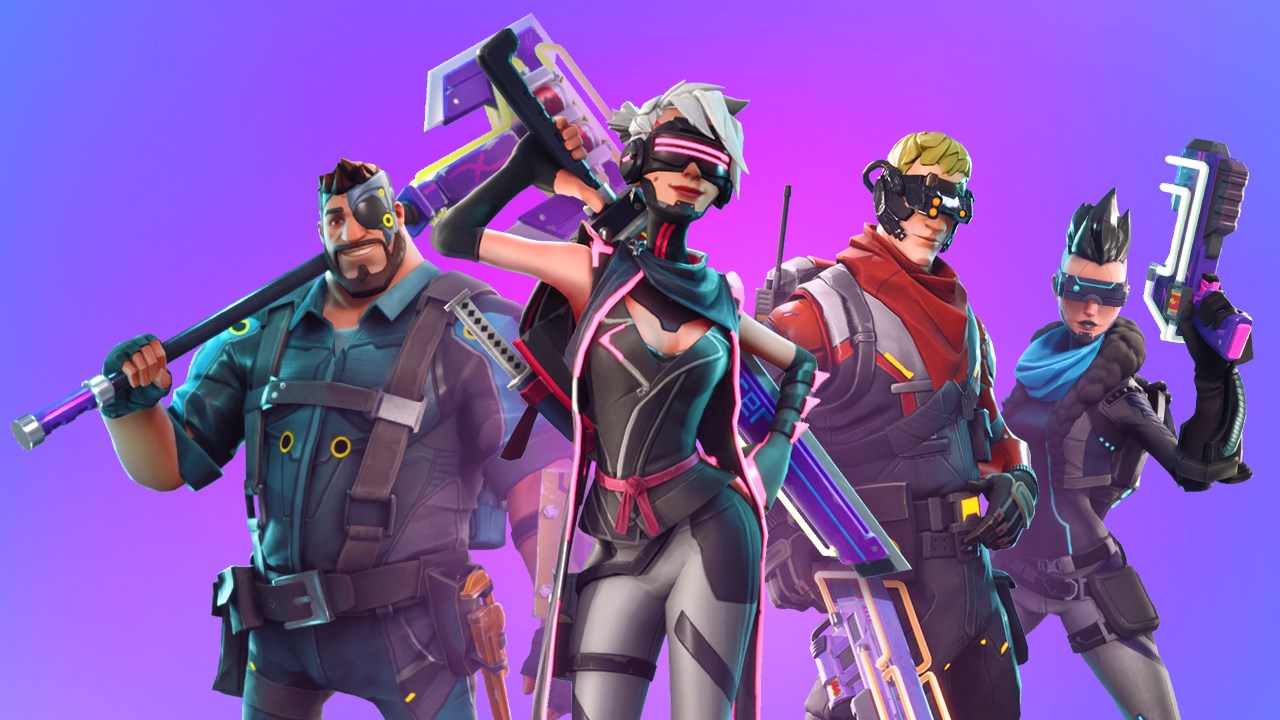
On paper that sounds like a strange conflict of interests, but according to Ahmad, it's a routine tension in Tencent's general business practices. You shouldn't expect any cannibalization of resources, nor should you expect for Fortnite and PUBG to be consolidated in any way.
"Tencent keeps a hands-off approach. Riot has remained Riot, Supercell has remained Supercell. They take care of their 'family' but from a distance it appears that they allow the acquired or invested companies to remain autonomous for the most part," he says. "Tencent is already confirmed to be the publisher of Fortnite in China later this year. We’ve already seen how successful the company has been with the PUBG brand in China and so we expect Tencent to invest a lot into Fortnite to expand its share of the Battle Royale market."
We also need to talk about cheating. Brendan Greene has said the majority of PUBG hacking issues originate in China. In early January, Bluehole partnered with the Chinese government to arrest 120 people who were making cheat software. Epic has ramped up its own anti-cheat software in recent months and filed formal lawsuits against some specific cheatmakers. How Epic plans to deal with cheaters in China could dictate whether servers are region locked, and it could prove an even greater challenge for Fortnite than PUGB. After all, it's free.
Overall, Ahmad is hopeful for the future of Fortnite in China, but he also offers a faint warning. "The game has been a huge success in the West on PC and console and the recent mobile release has performed extremely well despite operating in a closed invite only mode," he says. "However, competition is really heating up in China with multiple publishers bringing their own unique Battle Royale experiences to the market."
One thing is absolutely clear: Fortnite will enter China on an equal playing field. It won't have a leg up on consoles, nor will it be the first battle royale on mobile. If you've been waiting for Fortnite and PUBG to go head to head without any of those overlapping factors in place, here's your chance. May the best game win.

Luke Winkie is a freelance journalist and contributor to many publications, including PC Gamer, The New York Times, Gawker, Slate, and Mel Magazine. In between bouts of writing about Hearthstone, World of Warcraft and Twitch culture here on PC Gamer, Luke also publishes the newsletter On Posting. As a self-described "chronic poster," Luke has "spent hours deep-scrolling through surreptitious Likes tabs to uncover the root of intra-publication beef and broken down quote-tweet animosity like it’s Super Bowl tape." When he graduated from journalism school, he had no idea how bad it was going to get.

